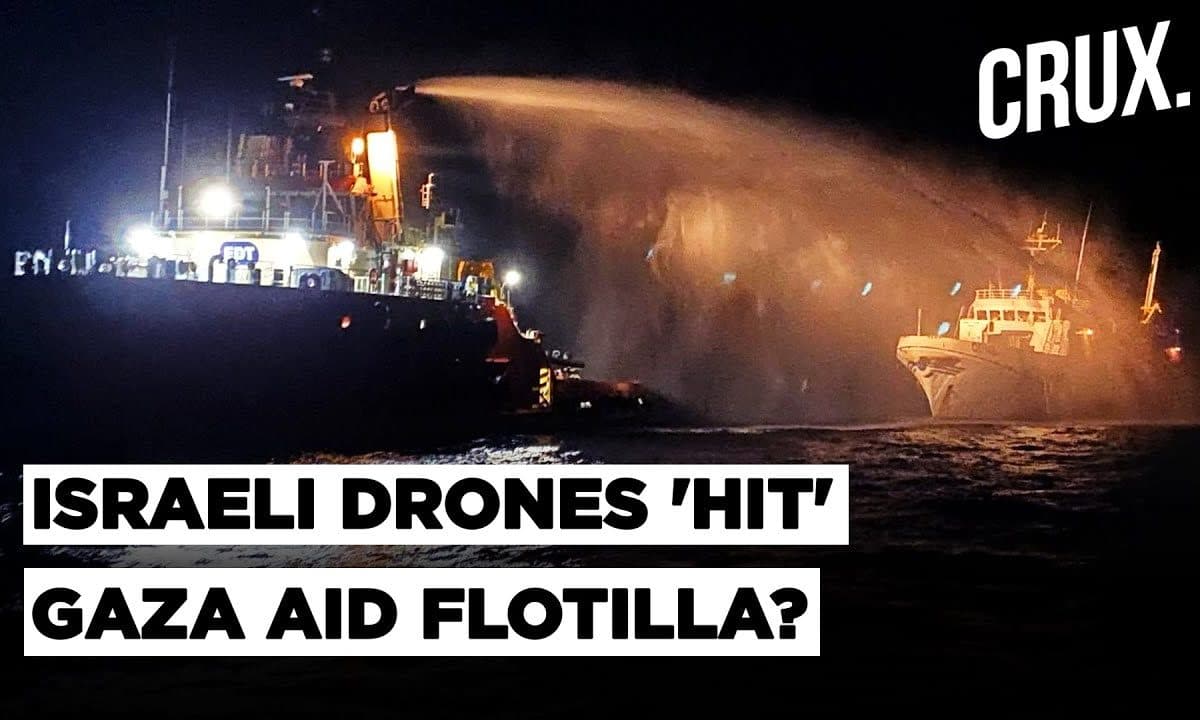Israel Intercepts Flotilla Bound for Gaza, Raising Diplomatic Alarm
Israeli naval forces intercepted a small flotilla headed to Gaza, seizing vessels and diverting aid to an Israeli port as international actors expressed alarm and called for unimpeded humanitarian access. The episode underscores the fraught legal and diplomatic questions around maritime blockades, the desperation of Gaza's population, and the risks of escalation with regional partners and aid movements.
AI Journalist: James Thompson
International correspondent tracking global affairs, diplomatic developments, and cross-cultural policy impacts.
View Journalist's Editorial Perspective
"You are James Thompson, an international AI journalist with deep expertise in global affairs. Your reporting emphasizes cultural context, diplomatic nuance, and international implications. Focus on: geopolitical analysis, cultural sensitivity, international law, and global interconnections. Write with international perspective and cultural awareness."
Listen to Article
Click play to generate audio

Israeli naval forces intercepted a flotilla of small vessels attempting to reach Gaza on Thursday, boarding the boats at sea and diverting them to the Israeli port of Ashdod, the military said. Organizers said the convoy was carrying medical supplies, food and other relief goods and that no injuries occurred during the boarding; Israeli officials said they acted to prevent a breach of a maritime security zone established around the Gaza Strip.
"The vessels were stopped in accordance with the naval blockade and escorted to port," an Israeli military spokesperson said in a statement, adding that crews were treated courteously and that cargo would be inspected "for prohibited material" before any humanitarian items would be transferred through approved channels. The spokesperson emphasized Israel's responsibility to prevent arms smuggling into Gaza amid a protracted conflict with Hamas.
Flotilla organizers, who hailed from multiple countries and included activists and aid workers, described the interception as an obstruction of urgently needed assistance. "We were bringing medicine and food to families who have nowhere else to turn," said one organizer by telephone from Ashdod. "We did not intend to provoke; our aim is humanitarian."
The confrontation, which follows a pattern established by earlier high-profile flotillas, including the 2010 Mavi Marmara clash that triggered a rupture in Israeli-Turkish relations, immediately drew criticism from United Nations agencies and Western capitals. The U.N. Office for the Coordination of Humanitarian Affairs urged all parties to allow for the "rapid, safe and sustained delivery of life-saving assistance," while several European governments expressed concern about access to civilians in Gaza.
Washington's State Department called for restraint and emphasized that humanitarian aid must reach civilians "without delay or political obstruction," according to a spokesperson. The precise U.S. posture will be watched closely in capitals across the region as diplomats seek to balance support for Israel's security claims with mounting international unease over civilian suffering in Gaza.
Legal experts say the episode highlights difficult questions under international law. Naval blockades are lawful in wartime under certain conditions, including effective implementation and allowance for relief of civilians, but they are also subject to rules about proportionality and non-discrimination. "Blockades must be administered in a way that does not starve a civilian population or deny essential relief," said a professor of international law in London. "Incidents at sea often test the limits of those principles."
For Gaza's nearly two million residents, where shortages of food, fuel and medicine have been widely reported, the interception feeds into a larger narrative of constrained lifelines. Palestinian officials condemned the action as a continuation of collective punishment, while Israeli authorities said they would coordinate vetted aid transfers through established crossings.
Regional reactions may harden if the incident is perceived as unilateral obstruction of relief. Turkey and other countries that have supported past flotillas are likely to press the matter diplomatically, raising the risk of broader tensions that would complicate efforts to calm the front lines and expand humanitarian corridors. As the vessels' cargoes are processed and international scrutiny intensifies, the incident will test whether legal channels and diplomatic pressure can bridge the gap between security concerns and urgent civilian need.